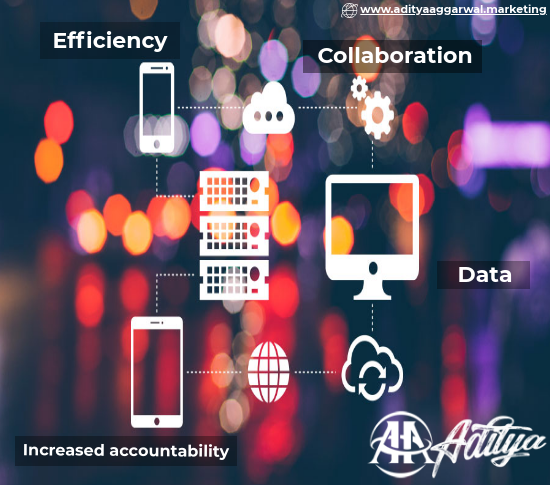Econsultancy Achieve Digital Excellence For Your Business strategy
What is Econsultancy?
The traditional econsultancy model of large teams on site for weeks at a time is out of sync with today’s culture. Clients want access to the very best people, and they want it on their terms.we’re changing consultancy forever. Our clients get the advice and support they need when they need it from enthusiastic and committed professionals – virtually.Consultancy engagements can be used to provide support and mentoring to help clients set and review goals and objectives, to apply skills and knowledge and to give a sounding board for ideas and projects that are planned or in progress.
Here are 4 benefits of Econsultancy?
Efficiency
A well-implemented CRM system can replace manual processes that create significant organizational inefficiencies. But CRM systems don’t just create efficiency by reducing the use of inefficient processes. Thanks to the ability of popular CRM platforms to integrate with other systems, such as marketing automation tools, the efficiencies of CRM can enable companies to interact with customers in ways that they wouldn’t have the resources to otherwise.
Collaboration
CRM systems give companies the ability to move away from tools, like spreadsheets, that appear to be entirely functional but fall short in a variety of areas. One of the biggest: collaboration. In even small organizations, the entire customer lifecycle is typically too complex to be managed effectively by one person. The use of cloud-based CRM platforms allows for employees in multiple departments to more effectively manage their customer relationships and to see the big picture at any time.
Data
For many organizations, data is one of the most valuable strategic assets, and CRM systems house some of the most valuable data. Of course, data in and of itself is often of limited practical use; its real value comes from data analysis and visualization tools. Here, popular CRM platforms typically offer a variety of homegrown and third-party tools that enable companies to understand their CRM data and learn things about their customers that wouldn’t be possible otherwise.
Sales force’s AppExchange, for instance, offers Salesforce customers access to dozens of apps that help them make sense of their Salesforce data and put it to good use.
Increased accountability
When companies lack the tools to manage their customer relationships, customers are bound to fall through the cracks. CRM systems can help ensure that this doesn’t happen by adding a layer of accountability to the customer relationship management process.
A well-implemented CRM system helps employees across departments understand their responsibilities to customers throughout the customer lifecycle and when those responsibilities aren’t met, it’s easy to identify what went wrong, where who fell short and how to make sure it doesn’t happen again.

How to implement in Econsultancy?
- All of your clients’ information is stored in one place, it’s easy to update and share with the whole team.
- Updates by colleagues should be saved immediately.
- Every member of your team will be able to see the exact point when your business last communicated with a client, and what the nature of that communication was.
- CRMs can give you instant metrics on various aspects of your business automatically.
- Reports can be generated. These can also be used to forecast and plan for the future.
- You will be able to see the complete history of your company’s interaction with a client.
- Calendars and diaries can be integrated, relating important events or tasks with the relevant client.
- Suitable times can be suggested to contact customers and set reminders.
Conclusion of Econsultancy
Customer-centric is a way of doing business with your customer in a way that provides a positive customer experience before and after the sale in order to drive repeat business, customer loyalty and profits.
But, a customer-centric company is more than a company that offers good service.
Both Amazon and Flipkart are prime examples of brands that are customer-centric and have spent years creating a culture around the customer and their needs. Their commitment to delivering customer value is genuine if they do not fit within their customer-centric culture!





